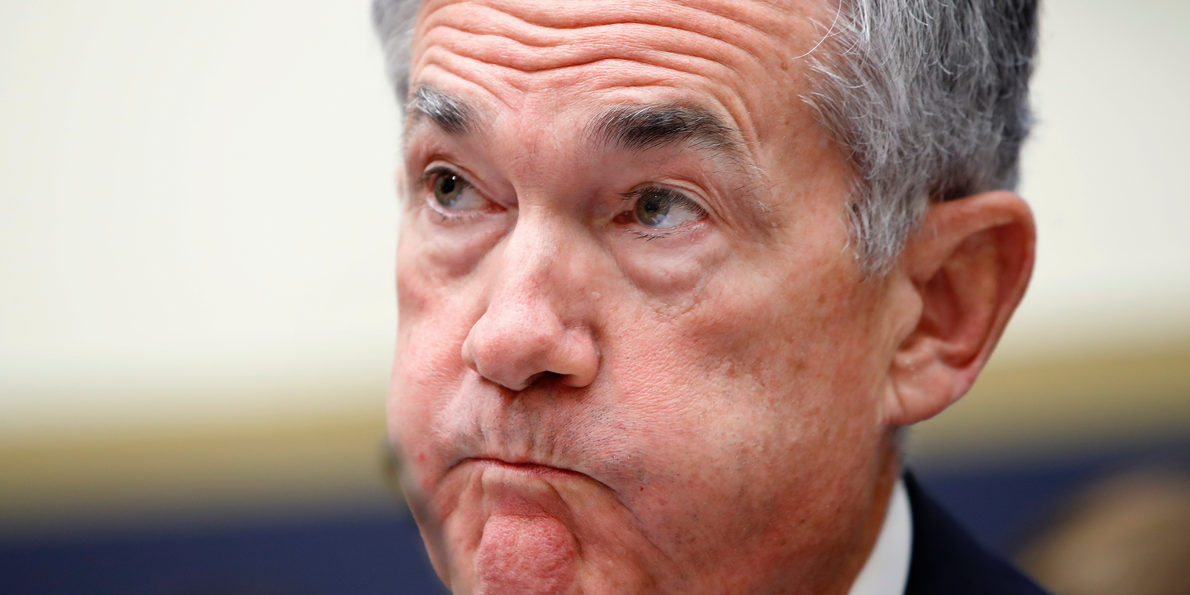Deconstructing The Liberal Platform: A Voter's Perspective

Table of Contents
Economic Policies of the Liberal Platform
The economic policies within the liberal platform generally advocate for a larger role of government intervention to address economic inequality and market failures. This approach contrasts sharply with conservative or libertarian viewpoints that emphasize free-market principles.
Taxation and Government Spending
Liberal approaches to taxation typically favor progressive taxation, where higher earners pay a larger percentage of their income in taxes. This revenue is then used to fund various social programs.
- Increased taxes on high earners to fund social programs: The argument here is that those with greater wealth should contribute more to the collective good, enabling the government to provide crucial services.
- Government investment in infrastructure projects: Liberals often support significant government spending on infrastructure development (roads, bridges, public transportation) to stimulate economic growth and create jobs.
- Regulations to protect workers and consumers: A key tenet is robust regulation to ensure fair labor practices, protect consumers from predatory business practices, and maintain environmental standards.
The potential benefits of these policies include reduced income inequality, improved social services (healthcare, education), and a stronger social safety net. However, potential drawbacks include potential economic slowdowns due to higher taxes, increased government debt, and the possibility of inefficient government spending. For example, while increased infrastructure spending can boost job creation, poorly managed projects can lead to cost overruns and limited returns. Examining the success of such programs in other countries with similar liberal platforms is crucial to assess their effectiveness.
Regulation and Free Markets
The liberal platform generally supports government regulation of businesses and industries to correct market failures, protect the environment, and ensure fair competition. This often contrasts with free-market approaches that prioritize minimal government intervention.
- Environmental regulations: Liberals typically advocate for strong environmental regulations to combat climate change and protect natural resources. Examples include carbon pricing mechanisms and stringent emission standards.
- Antitrust laws to prevent monopolies: The aim is to foster competition by preventing the formation of monopolies and oligopolies that can stifle innovation and harm consumers.
- Labor laws protecting workers' rights: These include minimum wage laws, workplace safety regulations, and the right to organize unions.
Arguments for government intervention highlight the need to protect consumers, workers, and the environment from unchecked market forces. Conversely, opponents argue that excessive regulation can stifle economic growth, reduce innovation, and lead to unintended consequences. The debate often centers on finding the optimal balance between government oversight and free-market principles. Analyzing the effectiveness of specific regulations, such as the impact of environmental regulations on economic growth or the success of antitrust actions in preventing monopolies, provides valuable insights into this complex issue.
Social Issues within the Liberal Platform
Social justice and equality are central to the liberal platform. This section delves into its key components.
Social Justice and Equality
The liberal platform champions social justice, aiming to address historical and systemic inequalities.
- Affirmative action: Policies designed to address past discrimination by providing preferential treatment to historically disadvantaged groups in education and employment.
- LGBTQ+ rights: Advocacy for equal rights and protections for lesbian, gay, bisexual, transgender, and queer individuals, including marriage equality and anti-discrimination laws.
- Racial justice initiatives: Efforts to address systemic racism through policies aimed at reducing disparities in areas such as criminal justice, education, and housing.
- Gender equality: Promoting equal rights and opportunities for women, including equal pay, reproductive rights, and protection from gender-based violence.
These initiatives aim to create a more equitable and inclusive society. However, debates surrounding these policies often involve discussions about fairness, meritocracy, and potential unintended consequences. Understanding the effectiveness and impact of these programs is crucial for informed political engagement.
Healthcare and Social Welfare
A significant aspect of the liberal platform focuses on healthcare access and social safety nets.
- Universal healthcare: Advocating for healthcare systems that guarantee access to quality healthcare for all citizens, often through government-funded or single-payer systems.
- Affordable housing initiatives: Government programs aimed at increasing the availability of affordable housing, often through subsidies or rent control.
- Food security programs: Initiatives designed to ensure that all citizens have access to sufficient and nutritious food, such as food stamps or subsidized school lunches.
- Expanded access to education: Promoting access to high-quality education at all levels, often through government funding and scholarships.
The debate surrounding government-funded social programs centers on the balance between individual liberty and collective responsibility, cost-effectiveness, and the overall impact on societal well-being. Comparing healthcare outcomes and social welfare indicators in countries with different approaches offers valuable insights into the potential effects of various policies.
Foreign Policy within the Liberal Platform
The foreign policy positions within the liberal platform emphasize international cooperation and diplomacy.
International Cooperation and Diplomacy
The liberal platform typically promotes international cooperation and multilateralism in addressing global challenges.
- Emphasis on international organizations (UN, NATO): Supporting and actively participating in international organizations to foster cooperation and address shared concerns.
- Support for international agreements (climate change accords): Advocating for and participating in international agreements to tackle global issues such as climate change, arms control, and trade.
- Humanitarian aid and intervention: Providing humanitarian assistance to countries in need and engaging in diplomatic interventions to prevent conflicts and protect human rights.
This approach emphasizes peaceful conflict resolution and collective action to address global challenges. However, critics raise concerns about the potential limitations of international cooperation, the effectiveness of humanitarian interventions, and the potential for compromising national interests.
Human Rights and Global Justice
Promoting human rights and global justice is a cornerstone of the liberal platform's foreign policy.
- Sanctions against human rights violators: Imposing sanctions on countries that engage in human rights abuses to pressure them to improve their human rights records.
- Support for democratic movements: Providing support to pro-democracy movements and advocating for democratic transitions in authoritarian countries.
- Advocacy for international human rights law: Promoting the development and enforcement of international human rights law to protect individuals from abuse and oppression.
The effectiveness of these strategies in promoting human rights and global justice is a subject of ongoing debate. The complexities of balancing national interests with ethical concerns in foreign policy present significant challenges.
Conclusion
This examination of the liberal platform provides a nuanced understanding of its core principles and potential implications. While proponents highlight its commitment to social justice, economic equality, and international cooperation, critics raise concerns about government overreach, economic inefficiencies, and potential unintended consequences. Ultimately, understanding the nuances of the liberal platform is crucial for making informed voting decisions. We encourage you to further research this complex ideology and engage in thoughtful discussions to form your own opinion on its merits and drawbacks. Continue your exploration by researching specific policies within the liberal platform that interest you most.

Featured Posts
-
 The Bold And The Beautiful April 3 Recap Liam Collapses Bills Exit And Hopes New Home
Apr 24, 2025
The Bold And The Beautiful April 3 Recap Liam Collapses Bills Exit And Hopes New Home
Apr 24, 2025 -
 John Travolta Addresses Candid Bedroom Photo Shared From 3 M Home
Apr 24, 2025
John Travolta Addresses Candid Bedroom Photo Shared From 3 M Home
Apr 24, 2025 -
 Tensions Flare South Carolina Voter Challenges Rep Nancy Mace
Apr 24, 2025
Tensions Flare South Carolina Voter Challenges Rep Nancy Mace
Apr 24, 2025 -
 No Firing Trump Comments On Federal Reserve Chairman Powells Position
Apr 24, 2025
No Firing Trump Comments On Federal Reserve Chairman Powells Position
Apr 24, 2025 -
 China Market Headwinds Bmw Porsche And The Future Of Luxury Auto Sales
Apr 24, 2025
China Market Headwinds Bmw Porsche And The Future Of Luxury Auto Sales
Apr 24, 2025
